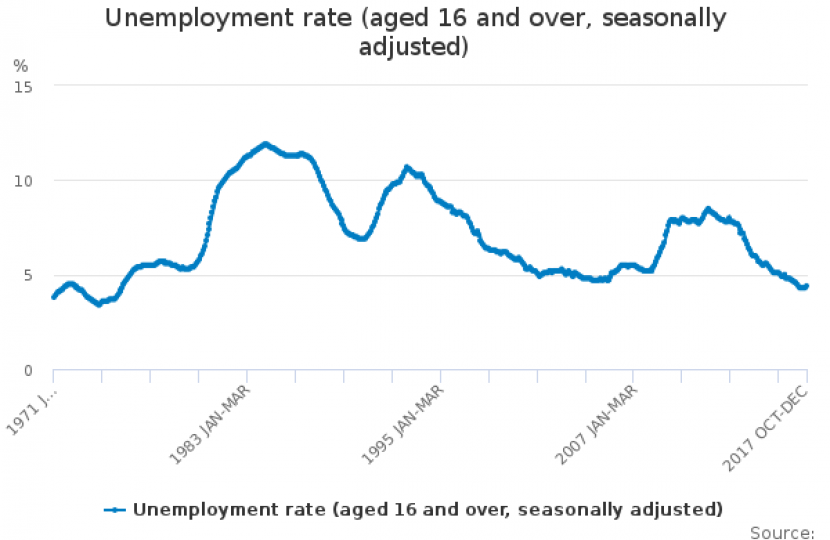
Under the Conservative government the unemployment rate has dropped from 7.9% down to 4.3%. This is the lowest unemployment rate since 1975. Currently there are 32.21 million people in the work force which is 415,000 more than for a year earlier. Specifically, over 70% of this rise in employment has been in higher-skilled jobs. This includes young people- youth unemployment is 33,000 lower than for a year earlier and over 400,000 lower than 2010.
John Hawksworth, chief economist at PwC, said the data showed "the UK jobs engine kicking back into life".
By helping business to create better, higher-paying jobs across the country, almost all of the increase in employment in the last year has come from new full-time jobs – and full-time employment is at a record high.
New figures are yet to be released regarding the level of unemployment in Ribble Valley. However the latest figures show that there was a reduction of unemployment claimants in July 2017 to 530 which was 15 less than in July 2016. This number represents a mere 1.1% of the economically active population in the Ribble Valley. The 1.1% the Ribble valley is experiencing is significantly less than the 2.5% average of the United Kingdom. The Ribble Valley is ranked as the 91st lowest of the 650 UK constituencies for total number of unemployment claimants.
Nigel Evans, who has been a vocal supporter of local business in the Ribble Valley hopes that the Conservative Government continues to implement policies to aid local business “I am thrilled to see growth in the economy of the Ribble Valley. We have fantastic small, medium and large businesses in Ribble Valley that have been able to grow, invest and create jobs thanks to the policies of the Conservative Government. I am fully committed to supporting local business and campaigning for business friendly policies on a national scale.”
Continuing Mr Evans stated “The Ribble Valley is benefiting greatly from the Government’s business growth policies, which I want to continue to create even more jobs. The unemployment rate is at 1.1%, well below the national average, which draws from the huge success of the businesses in the area. The Government’s push to enable growth in the North West has not only helped rural businesses, but created more jobs for the people who are the backbone of the British economy.”
